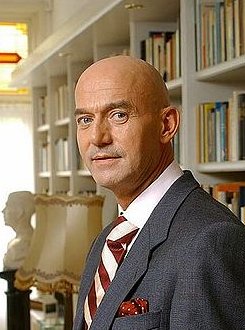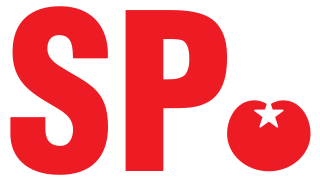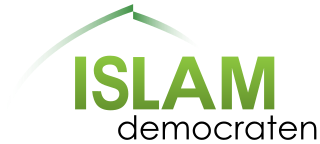
The politics of the Netherlands take place within the framework of a parliamentary representative democracy, a constitutional monarchy, and a decentralised unitary state. The Netherlands is described as a consociational state. Dutch politics and governance are characterised by a common striving for broad consensus on important issues, within both of the political community and society as a whole.

The House of Representatives is the lower house of the bicameral parliament of the Netherlands, the States General, the other one being the Senate. It has 150 seats, which are filled through elections using party-list proportional representation. Generally, the house is located in the Binnenhof in The Hague, however, it has temporarily moved to the former building of the Ministry of Foreign Affairs at Bezuidenhoutseweg 67 in the Hague while the Binnenhof is being renovated.

Livable Rotterdam is a local political party in the municipality of Rotterdam in the Netherlands, which was founded by Ronald Sørensen in 2001.

The Socialist Party is a democratic socialist political party in the Netherlands. Founded in 1971 as the Communist Party of the Netherlands/Marxist–Leninist, the party has since moderated itself from Marxism–Leninism and Maoism towards democratic socialism and social democracy. The SP has also been described as left-wing populist and soft Eurosceptic, and is an advocate of Dutch republicanism.

Elections in the Netherlands are held for five territorial levels of government: the European Union, the state, the twelve Provinces, the 21 water boards and the 344 municipalities. Apart from elections, referendums were also held occasionally, but have been removed from the law in 2018. The most recent national election results and an overview of the resulting seat assignments and coalitions since World War II are shown at the bottom of this page.

Geert Wilders is a Dutch politician who has led the Party for Freedom since he founded it in 2006. He is also the party's leader in the House of Representatives, having held a parliamentary seat since 1998. In the 2010 formation of the First Rutte cabinet, a minority government of the People's Party for Freedom and Democracy (VVD)—which he left in 2004—and Christian Democratic Appeal (CDA), Wilders actively participated in the negotiations, resulting in a "tolerance agreement" (gedoogakkoord) between the PVV and these parties. He withdrew his party's parliamentary support in 2012, citing disagreements with the cabinet over proposed budget cuts. Wilders is best known for his criticism of Islam and the European Union (EU); his views have made him a controversial figure in the Netherlands and abroad. Since 2004, he has been protected at all times by armed police.

Elections in Belgium are organised for legislative bodies only, and not for executive functions. Direct elections take place for the European Parliament, the Chamber of Representatives, the Parliaments of the Regions, the Parliaments of the Communities, the provincial councils, the municipal councils and the councils of Districts of Antwerp. Voting is mandatory and all elections use proportional representation which in general requires coalition governments.
Elections in the Philippines are of several types. The president, vice-president, and the senators are elected for a six-year term, while the members of the House of Representatives, governors, vice-governors, members of the Sangguniang Panlalawigan, mayors, vice-mayors, members of the Sangguniang Panlungsod/members of the Sangguniang Bayan, barangay officials, and the members of the Sangguniang Kabataan are elected to serve for a three-year term.

Elections in Lithuania are held to select members of the parliament, the president, members of the municipal councils and mayors, as well as delegates to the European Parliament. Lithuanian citizens can also vote in mandatory or consultative referendums.

A consultative referendum on the Treaty establishing a Constitution for Europe was held in the Netherlands on 1 June 2005 to decide whether the government should ratify the proposed Constitution of the European Union. The result was a "No" vote.

Mark Rutte is a Dutch politician who has served as Prime Minister of the Netherlands since 2010 and Leader of the People's Party for Freedom and Democracy (VVD) since 2006.

Provincial elections were held in the Netherlands, on 7 March 2007. The election also determined the members of the Senate, since the 564 members of the twelve provincial councils elect its 75 members. This election took place on 29 May 2007.
The Party for Freedom is a nationalist, right-wing populist political party in the Netherlands.

The Belgian provincial, municipal and district elections of 2012 took place on 14 October. As with the previous 2006 elections, these are no longer organised by the Belgian federal state but instead by the respective regions:

Federal elections were held in Belgium on 25 May 2014. All 150 members of the Chamber of Representatives were elected, whereas the Senate was no longer directly elected following the 2011–2012 state reform. These were the first elections held under King Philippe's reign.

Municipal elections were held on Wednesday 3 March 2010 in most municipalities in the Netherlands. This election determined the composition of the municipal councils for the following four years. The elections were held a few weeks after the fall of the Fourth Balkenende cabinet.
Municipal elections were held on 21 March 2018 in 335 municipalities in the Netherlands. This election determined the composition of the municipal councils for the following four years. The election coincided with the Intelligence and Security Services Act referendum.

Chris A. Jansen is a Dutch politician, who served as a member of the House of Representatives between November 2019 and March 2021 on behalf of the right-wing populist Party for Freedom (PVV).
Municipal elections were held on 16 March 2022 in 333 municipalities in the Netherlands. This election determined the composition of the municipal councils for the following four years.

The Islam Democrats (ID) is an Islamic democratic political party in the Netherlands which currently has no seats in the Hague council as of 2022 Dutch municipal elections.













